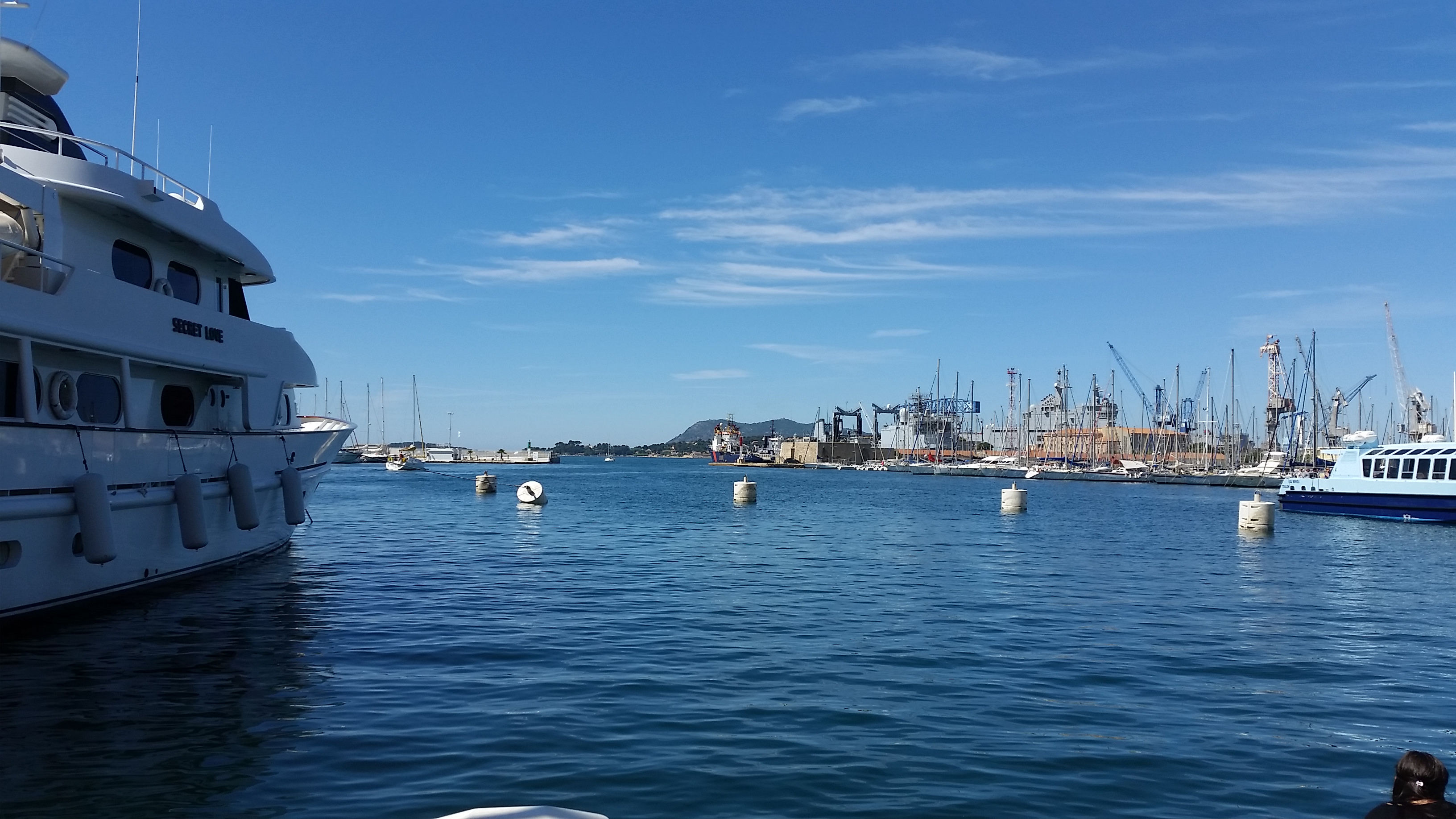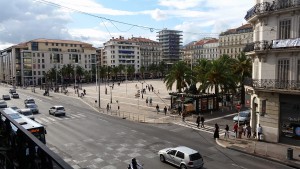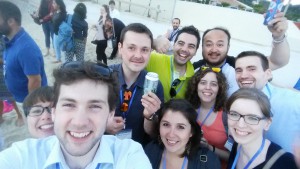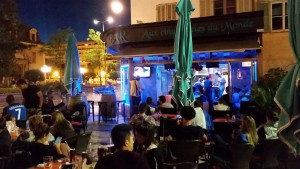
July 6, 2016, by paxsk3
International Conferences: Beers and Brexit
One of the highlights of academic research is the international conference. If one is fortunate enough to belong to a well-funded research group, you will likely have the opportunity at some point to present your work, expenses paid, at an exotic location somewhere around the world. PhD students are recommended to attend at least one international conference during their studies to gain experience in presenting to a highly knowledgeable audience, to get inspiration for future experiments and to network with colleagues and future employers.
I work in the field of marine biofouling which held its major conference in Toulon, France in late June. Plans for my attendance at an international conference went as far back as 2014, when this particular conference, the ICMCF, was based in Singapore. Alas, I was but a mere first year at the time and the data I had obtained at that point was insufficient to present at such a prestigious gathering. On booking myself onto the 2016 edition of this particular conference, I was initially somewhat disappointed to discover that it was to take place in France. Given a number of my colleagues had recently visited America, Canada and Japan, and having visited France a number of times, at first I hoped the location to be somewhere I had yet to visit. However, the opportunity to take advantage of a trip to any country should never be maligned and as the week unfolded, it was clear my initial disappointment was unfounded.
Each country is a law unto itself, with its language, culture and customs developed and defined over thousands of years. The same is true of cities. Unless you have spent a significant amount of time in another place, there is always something new to find out. Travel is a way of experiencing different outlooks and to combine these new experiences with your own working career is a unique privilege.
Among the academic community, conferences are semi-infamous for encouraging a work -hard, play-hard atmosphere. This conference was no exception. Each day was long, with presentations beginning at 8:15am and finishing at 6:30pm, leaving little time for much else other than socialising in the evenings and, if you managed it, sleep. No doubt having two years since the previous conference to plan allowed them to set out a near perfect timetable, with socials each evening at wonderful venues with superlative catering. You would expect no less from the French.
Conferences bring together major players from academia, industry and government. For an early stage student researcher this can be particularly daunting, with groups of people who have collaborated for over a generation mingling during the coffee breaks. Impostor syndrome begins to set in. It is especially nerve-wracking when you present your own work to around 200 said experts. To combat these fears, every detail had been covered by the organisers. On the first night a drinks and nibbles introductory session was arranged at the Toulon National Maritime Museum (Toulon is home to one of France’s foremost naval bases). On the second night, the students had an opportunity to meet each other at a young researchers’ gathering on the beach. Within two days all social awkwardness had been eliminated.
Socialising is an oft underrated form of networking. On the middle afternoon, many of us went kayaking up the Mediterranean coast. It is often useful to have activities like this where hierarchy and seniority are put to one side and delegates can enjoy just existing as social beings. Putting to one side the need to seek out the most important people in a room can actually aid future work collaborations.
Cultural happenings and political events also do a lot to help bring a diverse set of people together. The European football championships were fully underway and the expectations and naïve optimism the different nationals had for their own representatives of the beautiful game was interesting to compare. The futility of this optimism was brought into full focus, at least for me, after England’s abject ejection from the tournament by Iceland. Also during the week was summer solstice where the whole of la France came out to dance, sing and party on every street corner in every town and city in the entire country. Toulon was no exception with over twenty acts to choose from in the city centre alone. It should be noted that these events took up just the first half of the week, so should give an idea as to why chronic tiredness set in rather quickly among the student contingent.
The Dionysian joys of the night alas gave way to cold-headed Apollonian political reality on the final Friday morning when the result of the E.U. referendum was announced. Though of course not the end of the United Kingdom as a nation in Europe, a strange sort of tension filled the air. My new-found European friends were incredibly sympathetic towards me, especially as I had personally campaigned for Britain to remain a member of the European Union, but there was a profound sense of loss which never quite lifted.
Fortunately, sport again came to the rescue with the Toulon’s rugby team taking to the pitch in the final of the European tournament ‘Top 14’. Despite a narrow loss for the home town heroes, it was a good excuse for the delegates to gather for one last time to toast the achievements of the previous five days and the relationships forged from the conference.
Stephen Kenny is a final year PhD student studying biomaterials
No comments yet, fill out a comment to be the first




Leave a Reply